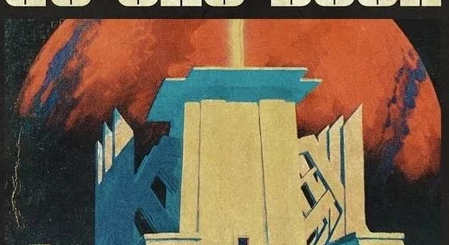At the Door – Unraveling the Multi-Layered Emotional Journey
Lyrics
Never gonna make it
Out of this in time
I guess that’s just fine
I’m not there quite yet
My thoughts, such a mess
Like a little boy
What you running for?
Arrive at the door
Anyone home?
Have I lost it all?
Struck me like a chord
I’m an ugly boy
Holding out the night
Lonely after light
You begged me not to go
Sinking like a stone
Use me like an oar
And get yourself to shore
Bang at the door
Anyone home?
It’s just what they do
Right in front of you
Like a cannonball
Slamming through your wall
In their face I saw
What they’re fighting for
I can’t escape it
I’m never gonna make it to the end, I guess
Struck me like a chord
I’m an ugly boy
Holdin’ out the night
Lonely after light
Banging on the door
I don’t want to know
Sinking like a stone
So use me like an oar
Hard to fight what I can’t see
Not trying to build no dynasty
I can’t see beyond this wall
But we lost this game
So many times before
I been on a cold road
I’ll be waiting, yeah
I’ll be waiting from the other side
Waiting for the tide to rise
I been on a cold road
I’ll be waiting, yeah
I’ll be waiting from the other side
Waiting for the tide to rise
Exiting the reverb-laden garage that birthed their early aughts rock anthems, The Strokes’ ‘At the Door’ hinges open to a soundscape that’s as expansive as it is introspective. This track, plucked from their sixth studio album, ‘The New Abnormal,’ illustrates a band that has weathered the phases of fame and is now introspecting with a raw and unfiltered gaze.
Listeners are ushered into frontman Julian Casablancas’s poignant lyrical ennui, drifting through a sonic universe of haunting synths and minimalistic arrangements—an unexpected departure that heralds an evolution. Herein lies a breakdown of ‘At the Door,’ an exploration of the cocoon of uncertainty and the existential throes encapsulated within The Strokes’ meteoric come-back anthem.
A Lyrical Descent into Emotional Isolation
‘I can’t escape it / Never gonna make it out of this in time,’ Casablancas confesses, his voice a vessel of resignation against the relentless tides of uncertainty. These opening lines serve not merely as a lament but as a mirror into the soul of modern disconnection. He paints a vivid picture of inertia, a symptom reflective of the world’s collective existential dread.
The imagery is stark; the protagonist is trapped, paralyzed by the churning of his stormy thoughts, akin to a little boy lost and running aimlessly. The Strokes tap into a universal vein of vulnerability within this anthem of angst—a potent cocktail of self-awareness served straight up, no chaser.
The Door as a Poignant Symbol: Entry or Barricade?
The symbolism of ‘the door’ recurrent throughout the song is up for interpretation—is it an entry to salvation or the unyielding barrier to a future unknown? ‘Arrive at the door / Anyone home?’ is the existential knock, the yearning for connection or perhaps understanding. Yet, the unanswered echo that follows suggests a pervasive loneliness that corrodes the core.
In using the metaphor of the door and the house, the song underscores a fundamental human experience: the quest for belonging and the despair of unreciprocated emotional investment. This door, possibly the entryway to a heart or to opportunity, remains unyielding, reflecting back only the protagonist’s own isolation.
The Haunting Visuals of Internal Warfare
There is an unmistakable brutality within the lyrics, ‘Like a cannonball / Slamming through your wall,’ depicting the violence of emotional battles fought internally. These verses evoke the catastrophic aftermath when personal demons breach the mental ramparts we’ve erected, a resonant emotion especially in an era where mental health battles are at the forefront of social consciousness.
With ‘In their face I saw / What they’re fighting for,’ Julian serves as witness to others’ strife, recognizing the ubiquitous nature of this struggle. Expressing this mutual combat elicits a raw shared humanity, extending an empathetic hand into the shadowy corners where listeners may find themselves.
Peeling Back the Layers to the Hidden Meaning
‘Hard to fight what I can’t see / Not trying to build no dynasty,’ the song relinquishes the pursuit of legacy that The Strokes, ironically, have long been on the brink of cementing. Casablancas articulates a sentiment of defeat against invisible adversaries—perhaps referencing the arduous journey of self-acceptance or the forsaking of expectations that society demands we chase.
This stealthy verse encapsulates a personal rebellion, a surrendering to the currents of life rather than fighting to erect monuments destined to erode. There lies the hidden meaning—a revelation of the futility in seeking validation or permanence in a world where change is the only constant.
Resonating with the Zeitgeist: Memorable Lines That Transcend
In the refrain, ‘I’ll be waiting, yeah / I’ll be waiting from the other side,’ The Strokes capture a zeitgeist of transition, of individuals poised on the precipice of change, awaiting the ebb and flow of fate. This mantra-like repetition becomes a soothing balm, a patience for metamorphosis that is both personal and collective.
The tidal imagery juxtaposed with ‘waiting’ crystallizes the anticipation of an inevitable change, resonant with those in stasis. It’s a reflective pause echoed in the hearts of a generation at the threshold, reminding us that amidst the cacophony of life’s demands, sometimes, the most profound action is to simply wait for the tide to rise.








